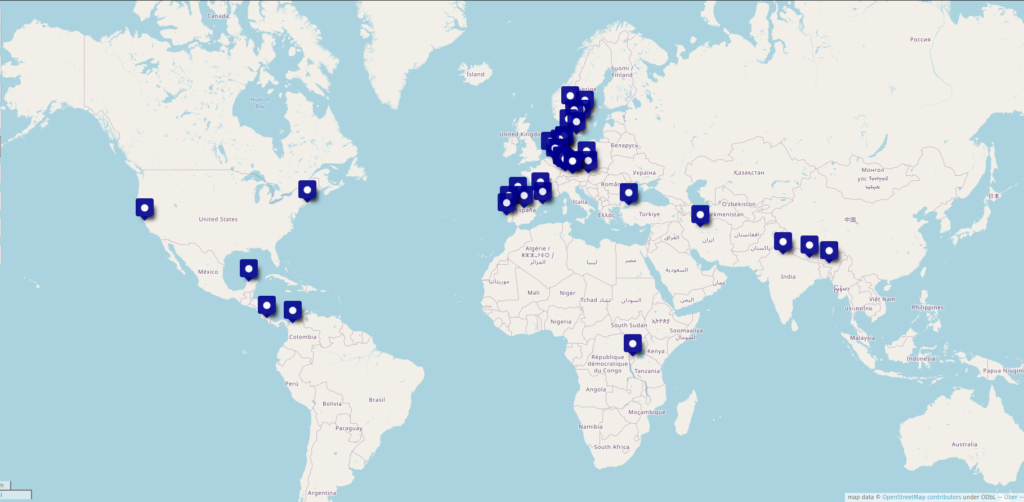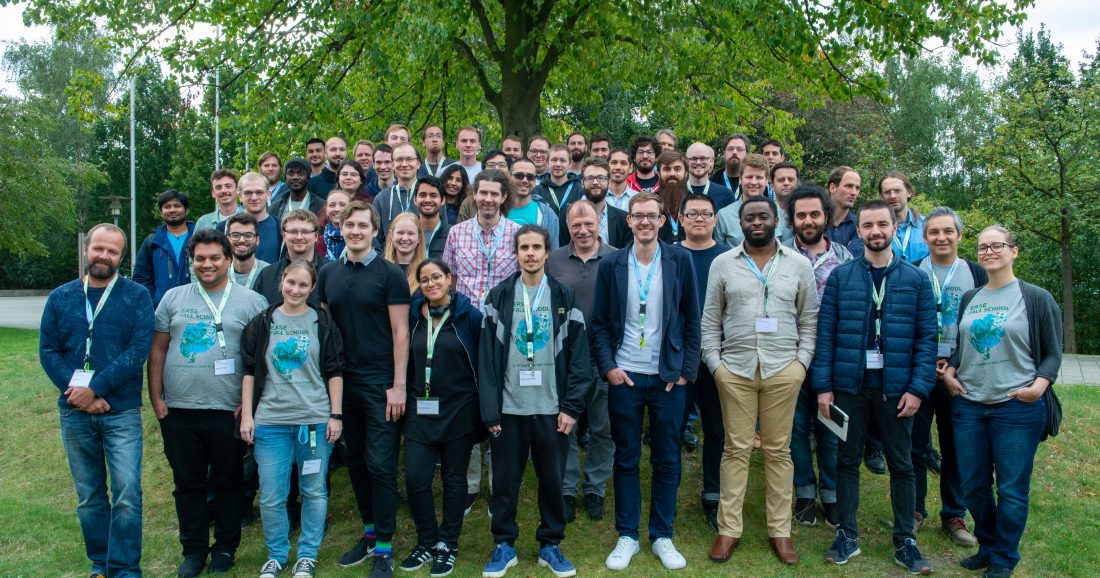
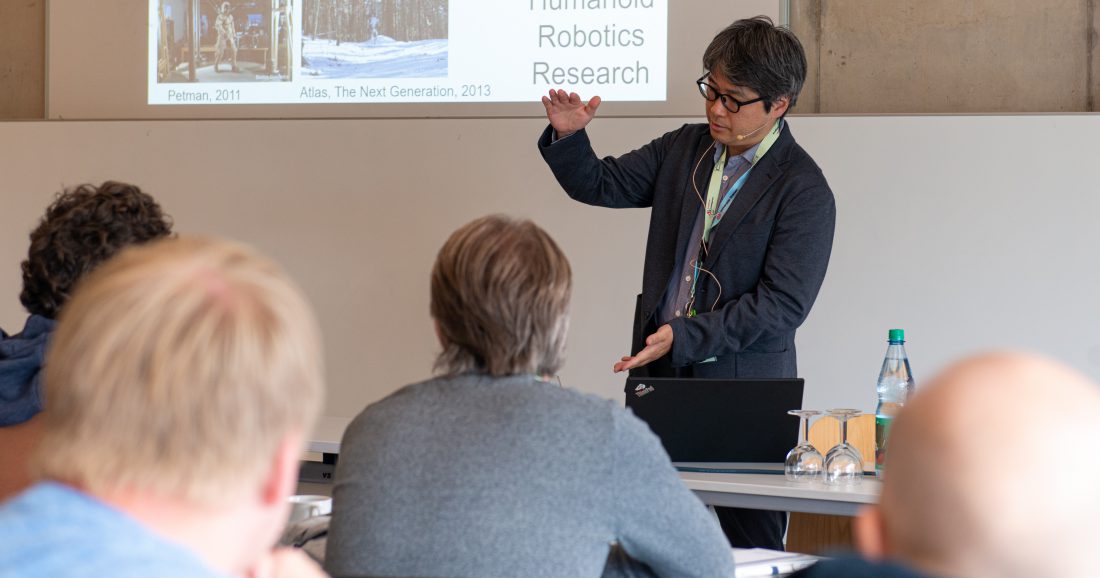
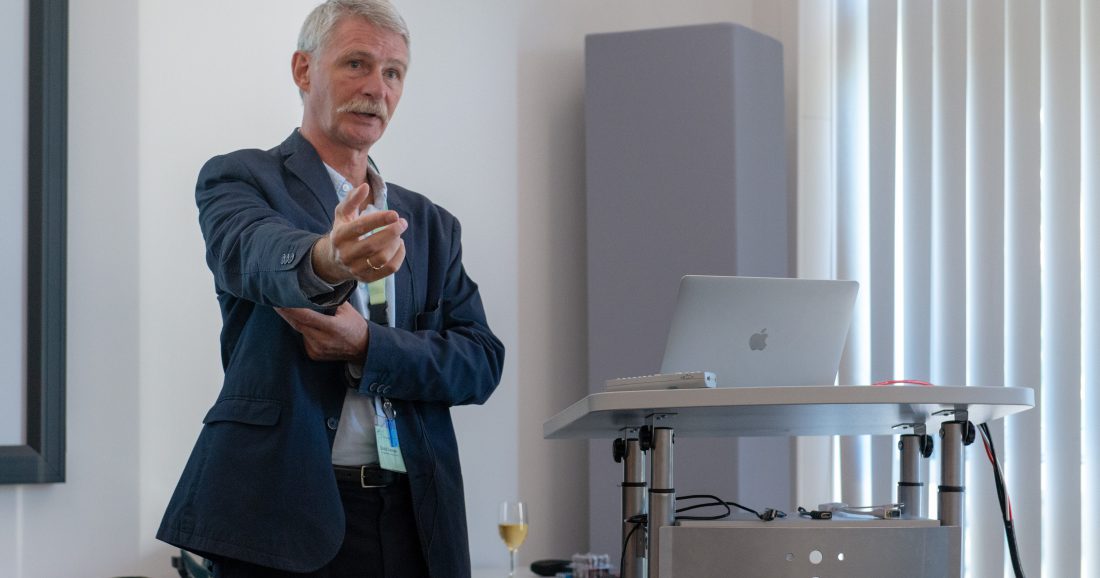
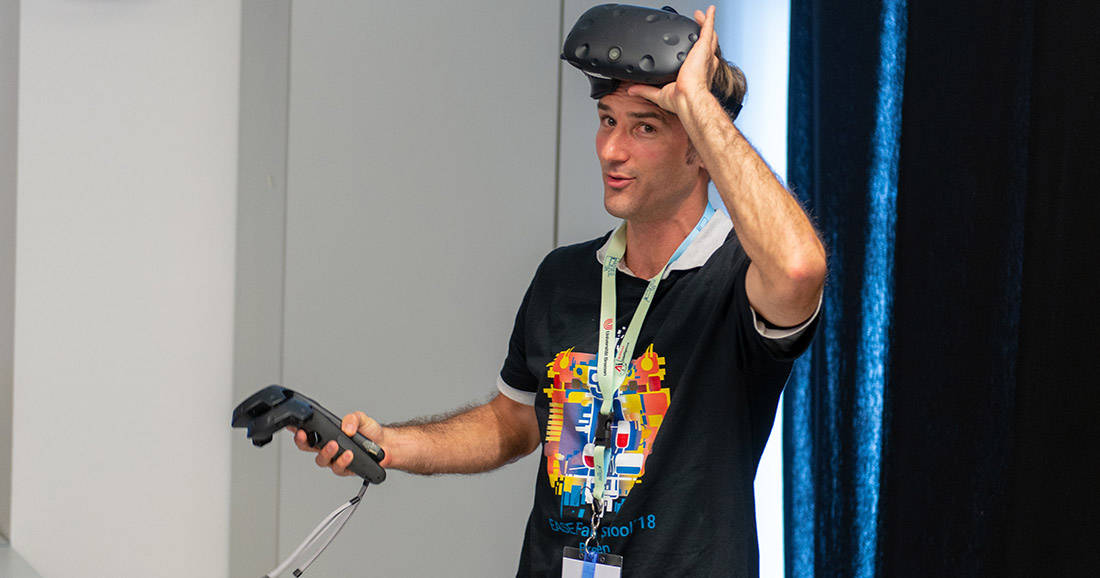
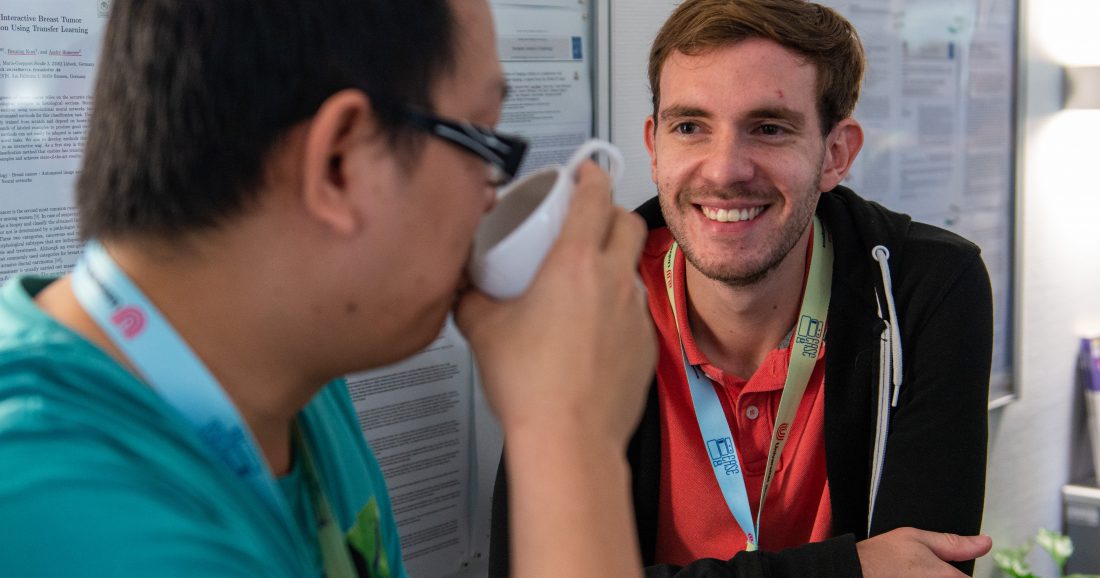
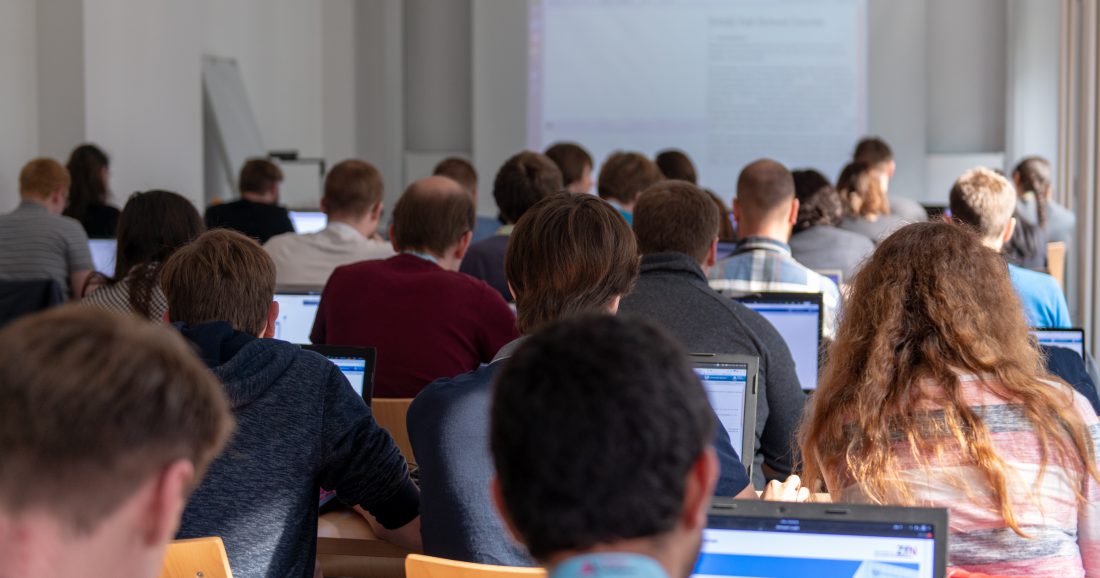
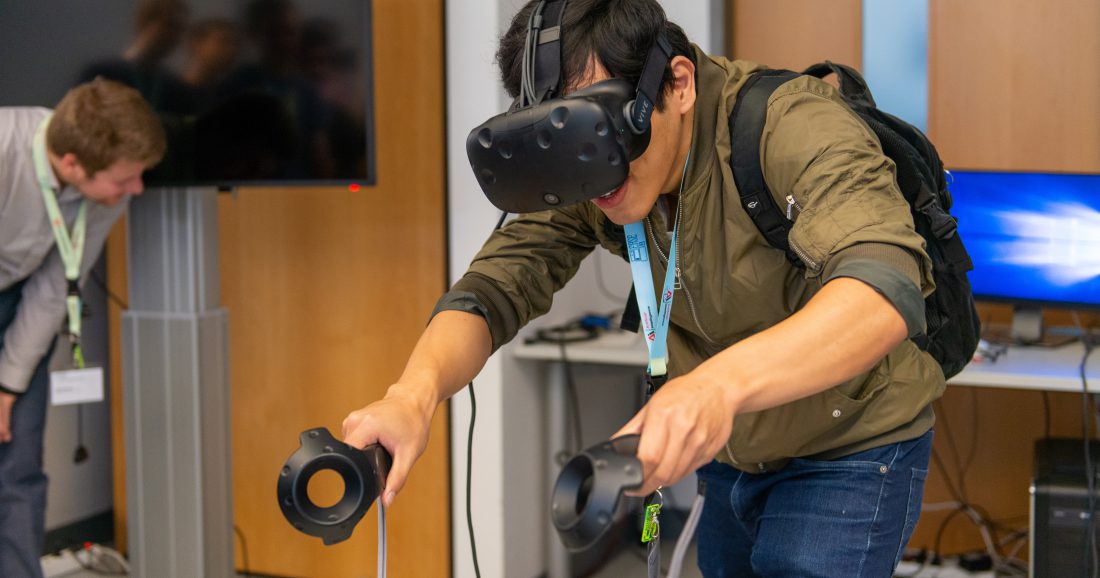
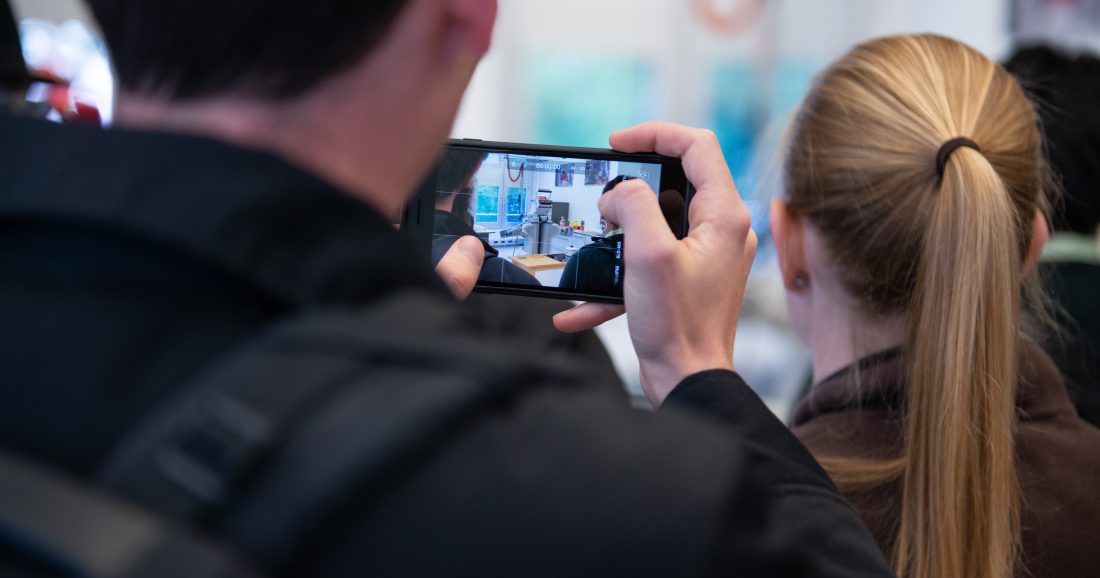
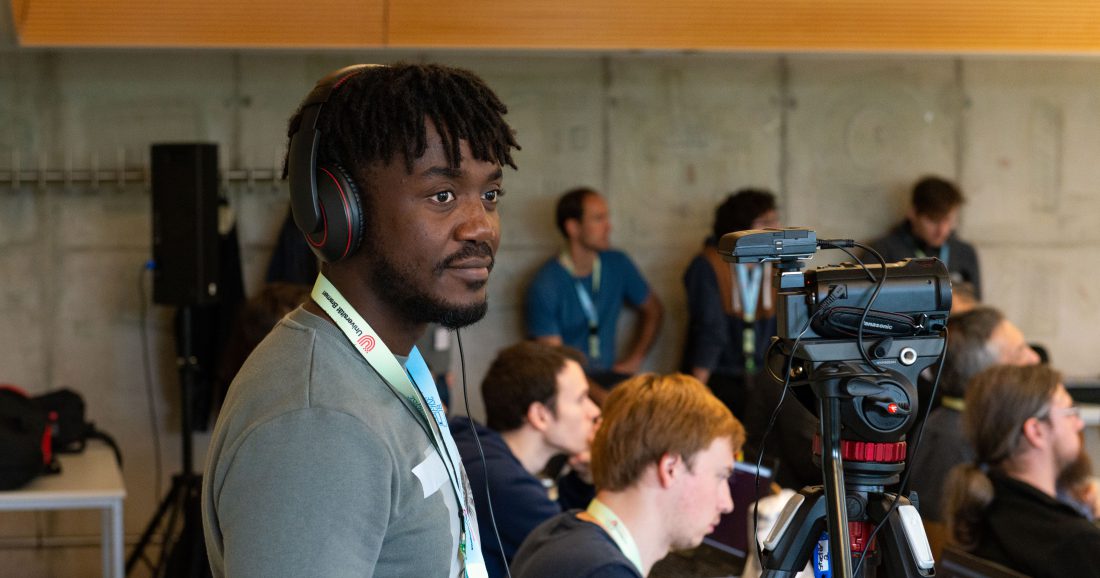


Virtual EASE & REMARO Fall School
8th - 12th November 2021
The EASE & REMARO Fall School is the place to get into the exciting field of cognition-enabled everyday activity and underwater robotics. Our Fall school gives doctoral students the chance to learn more about AI, robotics and the challenging field of robot manipulation in everyday and underwater environments. In lectures and hands-on courses, the Fall School students can exchange thoughts and ideas with our invited speakers and experts from the collaborative research center EASE and the REMARO network.
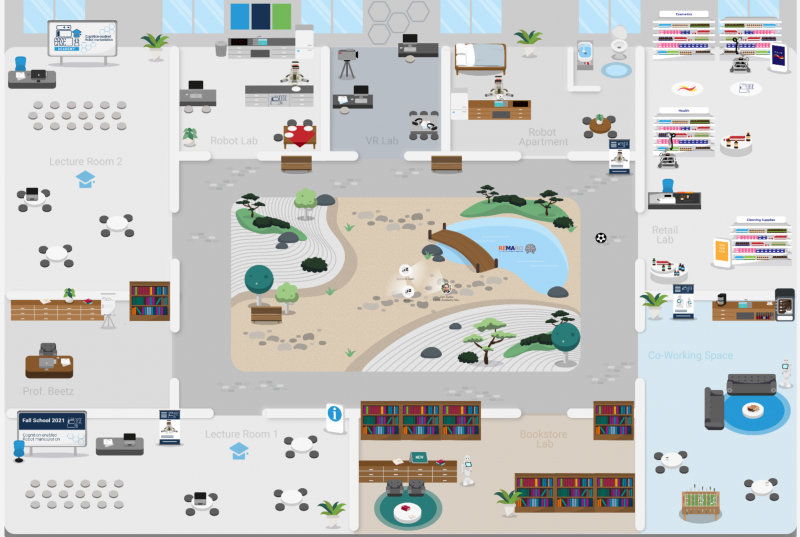
Venue
Due to the uncertainties revolving around the COVID-19 virus, the lectures will be conducted online.
All lectures and forums will be conducted via the HyHyve online event and networking platform. To access the platform kindly register in advance. The registration form is at the bottom of the page.
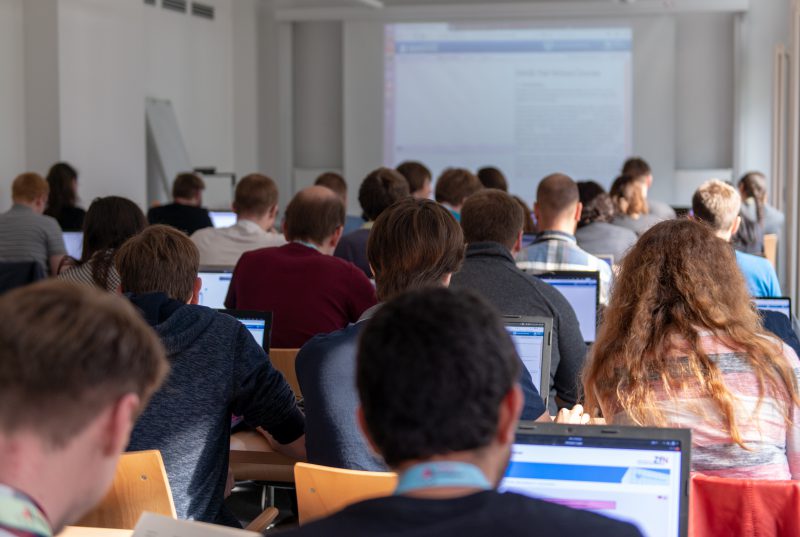
Courses
Our EASE & REMARO Fall School 2021 starts on November 8th and ends on November 12th.
Each day will start with a lecture given by experienced researchers, invited speakers and industrial partners.
This year the EASE Fall School is co-hosted by the REMARO network and offers the first REMARO training workshops in joint and separate sessions.
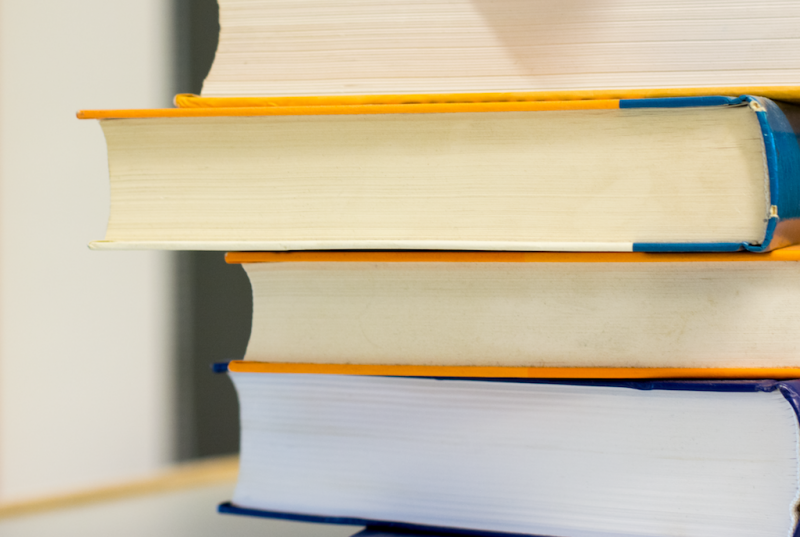
Fee
As application for the EASE Fall School 2021 we are asking for a short letter of motivation. The Submission Deadline is November 4th, 2021.
The EASE Fall School 2021 fee package is free of charge. Included are the following services:
- All lectures and workshops given during the Fall School


Program
| time | program | Resources |
|---|---|---|
| 12:00 | Registration (Virtual Space) | |
| 12:00 – 13:00 | Welcome session-EASE Fall School 2021 (Michael Beetz, Jörn Syrbe) | |
| 13:00 – 13:30 | Break | |
| 13:30 – 14:30 | Michael Beetz: Knowledge Representation for Robotics | |
| 14:30 – 15:00 | Break | |
| 15:00 – 16:00 | Hands-On NEEMS (Sascha Jongebloed) | NEEMS Tutorial |
| 16:00 – 17:00 | Hands-On Neems (Sascha Jongebloed) | |
| 17:00 – 18:00 | Hands-on Recording Neems (Michael Neumann) |
| time | program | Resources |
|---|---|---|
| 12:00 – 13:00 | David Vernon: Action Selection and Execution in Everyday Activities – A Cognitive Robotics and Situation Model Perspective | |
| 13:00 – 13:30 | Break | |
| 13:30 – 14:30 | Jean-Baptiste Weibel: Robot Perception for Grasping | |
| 14:30 – 15:00 | break | |
| 15:00 – 16:00 | Martin Butz: Event-Predictive Active Inference - Developing Conceptual, Compositional Cognition from Sensorimotor Experiences | |
| 16:00 – 17:00 | Hands-on Robot Perception (Vanessa Hassouna) | RoboSherlock Tutorial |
| 17:00 – 18:00 | Hands-on Robot Perception (Vanessa Hassouna) | |
| 18:00 – 19:00 | Hands-on Robot Perception (Vanessa Hassouna) |
| time | program | Resources |
|---|---|---|
| 12:00 – 13:00 | Maria Hedblom: From sense to reason – using image schemas to intelligently reason about objects and events | |
| 13:00 – 13:30 | Break | |
| 13:30 – 14:30 | Sven Behnke: Perception, Planning, and Learning for Cognitive Robots | |
| 14:30 – 15:00 | Break | |
| 15:00 – 16:00 | Hands-On CRAM (Alina Hawkin, Arthur Niedzwiecki) | CRAM Tutorial |
| 16:00 – 17:00 | Hands-On CRAM (Alina Hawkin, Arthur Niedzwiecki) | |
| 17:00 – 18:00 | Hands-On CRAM (Alina Hawkin, Arthur Niedzwiecki) |
| time | program | Virtual Room |
|---|---|---|
| 12:00 – 13:00 | Michael Beetz: Cognitive-enabled robotics – where are we? | |
| 13:00 – 13:30 | Break | |
| 13:30 – 14:30 | Pedro Lima: A Probabilistic Approach to Benchmarking and Performance Evaluation of Robot Systems | |
| 14:30 – 15:00 | Break | |
| 15:00 – 16:00 | Karinne Ramirez: Stretching the limits of Knowledge Representations in Robotics | |
| 16:00 – 17:00 | Open Lab / Networking | Open Lab Sessions |
| 17:00 – 18:00 | Roberto Martín-Martín: Representing Knowledge for Robotic Tasks in Household Environments | |
| 18:00 – 19:00 | Open Lab / Networking | Open Lab Sessions |
| 19:00 – 20:00 | Stefanie Tellex |
| time | program | Virtual location (Room) |
|---|---|---|
| 10:20 – 10:30 | REMARO Welcome Session (Andrzej Wasowski) | |
| 10:30 – 11:00 | Antonio Sergio: Designing of light autonomous underwater vehicle (LAUV) | |
| 11:00 – 11:15 | Martin Aubard: AI side-scan sonar for LAUV application | |
| 11:15 – 11:30 | Sergio Daniel Quijano: Model-based testing in the LAUV case study | |
| 11:30 – 12:00 | Break | |
| 12:00 – 15:00 | EASE Sessions | |
| 15:00 – 15:30 | Yury Brodskiy: UnsuperPoint – End-to-end unsupervised interest point detector and descriptor generator | |
| 15:30 – 16:00 | Olaya Alvarez Tunon: Developing a simulator with Gazebo+ROS | |
| 16:00 – 16:15 | Coffee break | |
| 16:15 – 16:45 | Sasan Vakili: Stochastic hybrid systems | |
| 16:45 – 17:15 | Jeremy Coffelt: How do autonomous underwater robots decide what to do? | |
| 17:15 – 17:30 | Coffee break | |
| 17:30 – 18:00 | Breakout Sessions | |
| 18:00 – 18:30 | Conclusions in plenum (Andrzej Wasowski) |
| time | program | Resources |
|---|---|---|
| 12:00 – 13:00 | ROSEN, artiminds | |
| 13:00 – 13:30 | Break | |
| 13:30 – 14:30 | Michael Suppa: Perception for Real-Life Applications | |
| 14:30 – 15:00 | Break | |
| 15:00 – 16:00 | Farewell session (Michael Beetz, Jörn Syrbe) | |
| 16:00 – 17:00 | Hands-On Knowledge4Retail (Michaela Kümpel) | |
| 17:00 – 18:00 | Hands-On Knowledge4Retail (Michaela Kümpel) | |
| 18:00 – 19:00 | Hands-On Knowledge4Retail (Michaela Kümpel) |
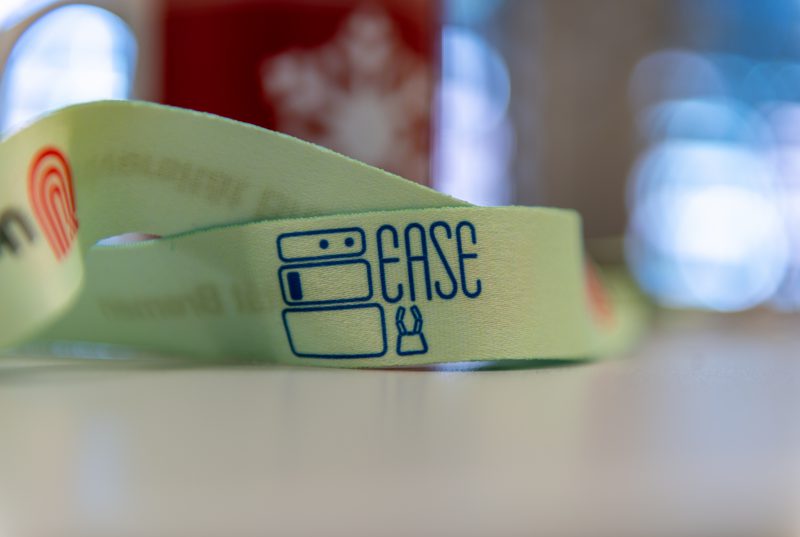
Lecturers
- Stefanie Tellex Brown University
- Roberto Martín-Martín Stanford University
- Sven Behnke University of Bonn
- Martin Butz University of Tübingen
- Michael Beetz University of Bremen
- Jörn Syrbe University of Bremen
- Pedro Lima Universidade de Lisboa
- Maria Hedblom Jönköping University
- Karinne Ramirez Chalmers University of Technology
- David Vernon Carnegie Mellon University
- Jean-Baptiste Weibel TU Wien
- Michael Suppa Roboception
- Benjamin Alt artiminds
- Andrzej Wasowski IT University of Copenhagen
- Antonio Sergio University of Porto
- Martin Aubard OceanScan
- Sergio Daniel Quijano IT University of Copenhagen
- Yury Brodskiy EIVA
- Olaya Alvarez Tunon Aarhus University
- Sasan Vakili RWTH Aachen
- Jeremy Coffelt ROSEN Group, University of Bremen
- Alina Hawkin University of Bremen
- Vanessa Hassouna University of Bremen
- Michaela Kümpel University of Bremen
- Sascha Jongebloed University of Bremen
- Arthur Niedzwiecki University of Bremen
- Michael Neumann University of Bremen
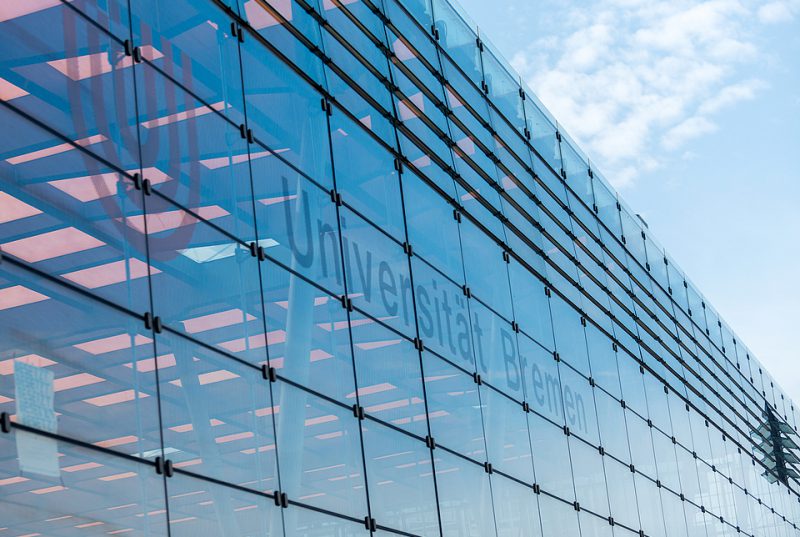
Research
The Robotics team at the Institute for Artificial Intelligence (IAI) at Universität Bremen is directed by Prof. M. Beetz. The team focuses on research in robotics and artificial intelligence and includes methods for knowledge representation for robots among other approaches.
The REMARO ETN is a consortium of recognized submarine AI experts, software reliability experts, and a marine safety certification agency created to educate 15 ESRs able to realize the vision of reliable autonomy for underwater applications.
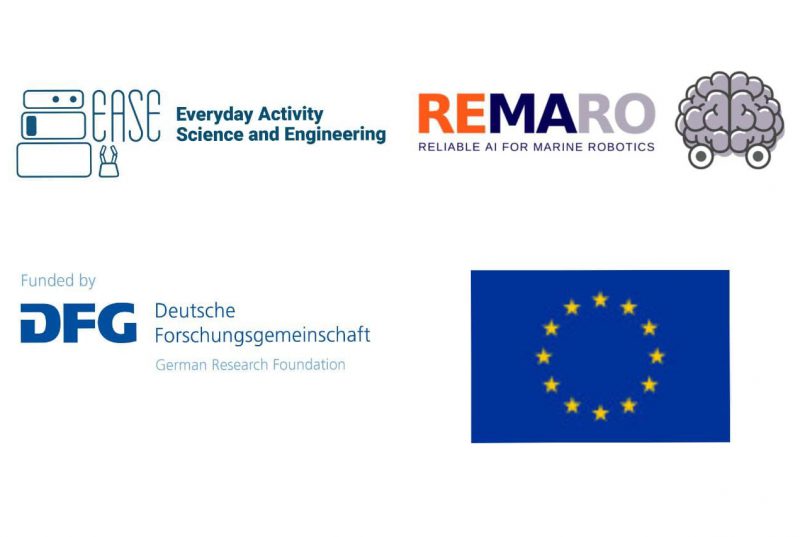
Funding
The Fall School has been supported by the German Research Foundation DFG, as part of Collaborative Research Center (Sonderforschungsbereich) 1320 “EASE - Everyday Activity Science and Engineering”, University of Bremen.
The REMARO project has received funding from the European Union's EU Framework
Programme for Research and Innovation Horizon 2020 under Grant
Agreement No 956200.
EASE & REMARO Fall School Participants 2021
